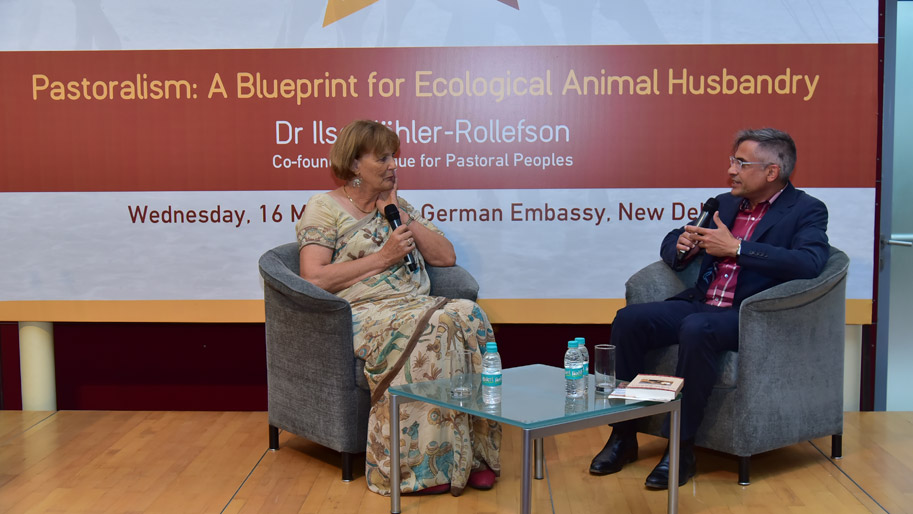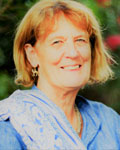Science Talk - “Pastoralism: A Blueprint for Ecological Animal Husbandry”
 © DWIH New Delhi
© DWIH New Delhi
Event Information
May 16, 2018
New Delhi
Organizer(s): DWIH - German Centre for Research and Innovation New Delhi, German Embassy
Pastoralism (herding animals on natural vegetation and/or harvested fields) is often considered as an outdated mode of raising livestock, whereas sedentary animal husbandry practices based on especially cultivated feed is thought off as desirable. However, from both an ecological and economic perspective, pastoralism has been seen to have many advantages over intensive animal husbandry – which has over the years contributed towards water, soil and air pollution. This further has led to dangerous levels of antibiotic resistance thus increasing the number of animal welfare cases.
Fortunate in this regard, so far pastoralism is still widely practiced in India and contributes to more than 50% of the nation’s meat and generates organic fertilisers worth billions of Indian rupees. Hence, in order to avoid the disappearance of pastoralism in future leading to enormous economic and ecological losses, this science circle lecture will highlight the need to provide urgent policy support to these ecological food production systems and also make appropriate recommendations.
Speaker
Dr Ilse Kohler-Rollefson
 Dr Ilse Kohler-Rollefson, a veterinarian by training, received her Habilitation in History of Veterinary Medicine from LMU University in Munich. Her research pertaining India’s Raika pastoralists turned her from an academician into an activist for the rights of pastoral people and for recognising their role in stewarding biodiversity. In 1992, she co-founded the League for Pastoral Peoples, an NGO based in Germany that advocates for biodiversity conserving livestock keeping at the UN level. She consults for FAO, GIZ, World Bank and other international organizations.
Dr Ilse Kohler-Rollefson, a veterinarian by training, received her Habilitation in History of Veterinary Medicine from LMU University in Munich. Her research pertaining India’s Raika pastoralists turned her from an academician into an activist for the rights of pastoral people and for recognising their role in stewarding biodiversity. In 1992, she co-founded the League for Pastoral Peoples, an NGO based in Germany that advocates for biodiversity conserving livestock keeping at the UN level. She consults for FAO, GIZ, World Bank and other international organizations.
Apart from this, Dr Köhler-Rollefson has authored the popular book “Camel Karma” – which narrates her work with India’s camel nomads, besides several other monographs and more than hundred scientific publications spanning a wide range of disciplines including animal science, anthropology, archaeology, development studies, and veterinary medicine. She recently became one of the founders of the Kumbhalgarh Camel Dairy which connects nomadic camel milk producers with urban consumers.
Registration
Only by invitation
Event Report
Read the event report here.
